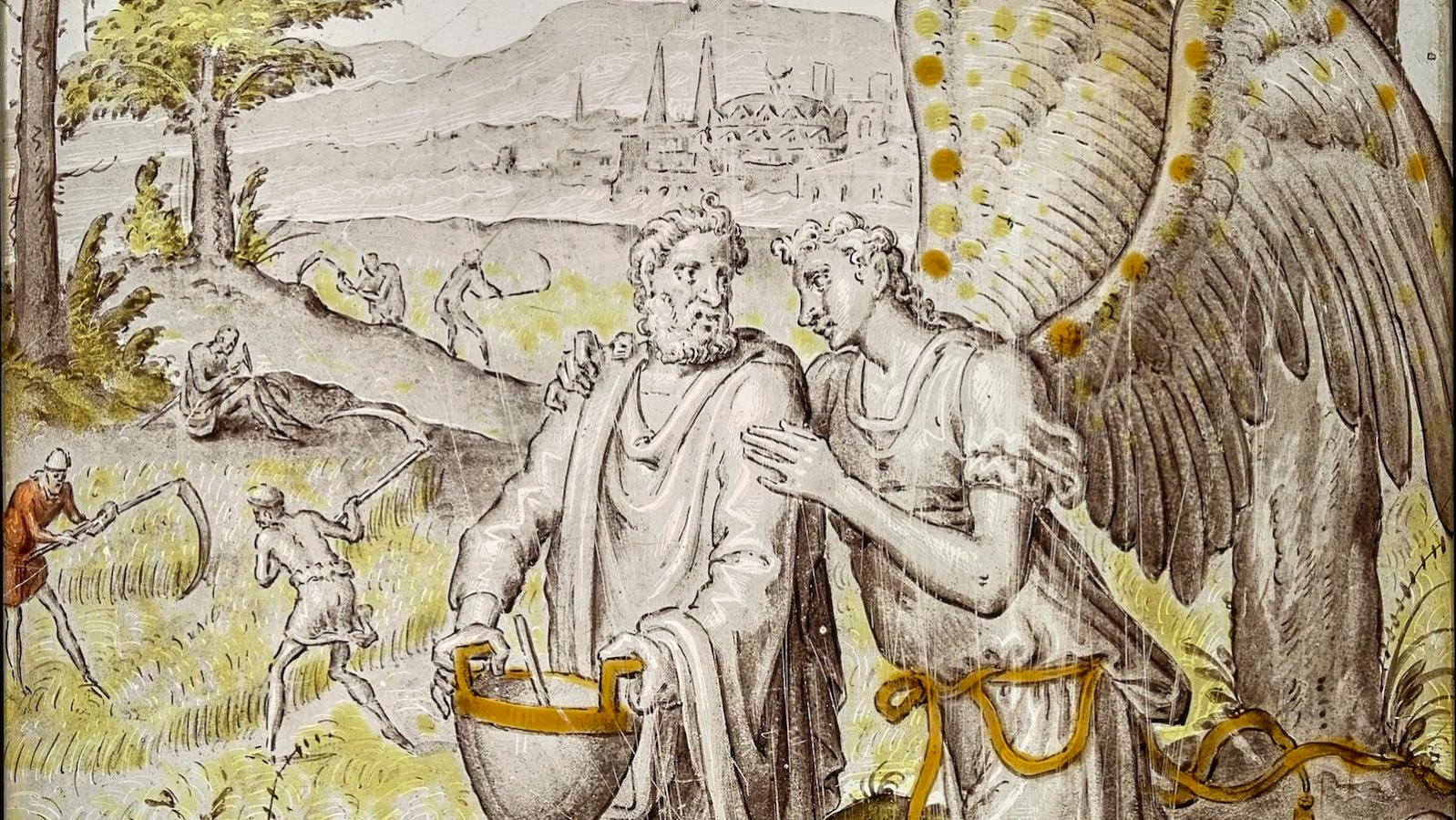According to an old rabbinic tradition (Talmud, Megillah 31a), two alternative readings are recorded for Shavuot. “Habakkuk” is the [prophetic reading] to be read in conjunction with Deuteronomy 16:9ff. (“You shall count off seven weeks”), whereas “The Chariot” (Merkavah) account in Ezekiel 1 is to be recited with Exodus 19:1ff. (“On the third new moon”). The talmudic passage continues, “But now that there are two days [of the festival], we do both [sets of readings], but in reverse [sequence].” That is, Ezekiel 1 and its portion are read on the first day of Shavuot, Habakkuk 3 and its portion on the second.
Commenting on the talmudic reference to the Habakkuk selection, Rashi [the medieval commentator] says, “For it speaks of the Giving of the Torah; ‘God comes from Teman’ [Habakkuk 3:3]–with the Giving of the Torah.” In this explanation, Rashi follows the Targum and an old ic tradition (Sifre Deuteronomy 343).
But in his commentary to the biblical verse itself, Rashi goes further. He alludes to a tradition whereby God went to the other nations to see if they would accept the Torah, but they refused. Significantly, these homilies make their point through exegetical use of Habakkuk 3:6, “When He stands, He measures [moded] the earth; when He glances, He unlooses [va-yatter] nations.” According to [midrash] Leviticus Rabbah 23:2, God took the measure of the mountains, but found only Sinai “worthy” for the revelation; and He took the measure of the earth, but found only the Land of Israel “worthy” for His people. He thereupon gave the Israelites a dispensation (hetter) with respect to the other nations and permitted (hittir) the nations a certain leniency in their ritual life. According to another version, God took the measure of the nations to see if they would accept the teachings of the Torah, but this “unloosed” the nations and caused them to “jump back” [yatter] in rejection ([Midrash] Mekhilta de-Rabbi Ishmael, Ba-Hodesh 5).
Habakkuk 3 thus proves central in ancient homilies attempting to explain or justify why Israel alone received God’s revelation. In one view, Israel was singled out because of its special worthiness; on the other, the revelation was offered to all nations, but the responsibilities demanded by it caused the other peoples to withdraw. An intermediate position has Israel cower in fear as well, but then God raises Sinai over their heads and threatens them with death if they do not accept the Torah (Talmud, Avodah Zarah 2b). For all its mythic concreteness and irony, this midrash penetrates an aspect of the rabbinical understanding of the mystery of Israel, for it teaches that Torah is Israel’s sacred destiny and the source of its national and spiritual life. This truth is reconfirmed on the festival of Shavuot, when the community of Israel stands before the spiritual reality of Sinai and “renews” it “in these years” (Habakkuk 3:2).

Help us keep Jewish knowledge accessible to millions of people around the world.
Your donation to My Jewish Learning fuels endless journeys of Jewish discovery. With your help, My Jewish Learning can continue to provide nonstop opportunities for learning, connection and growth.
This article is excerpted from The JPS Bible Commentary: Haftarot. It is reprinted with permission from the Jewish Publication Society.



